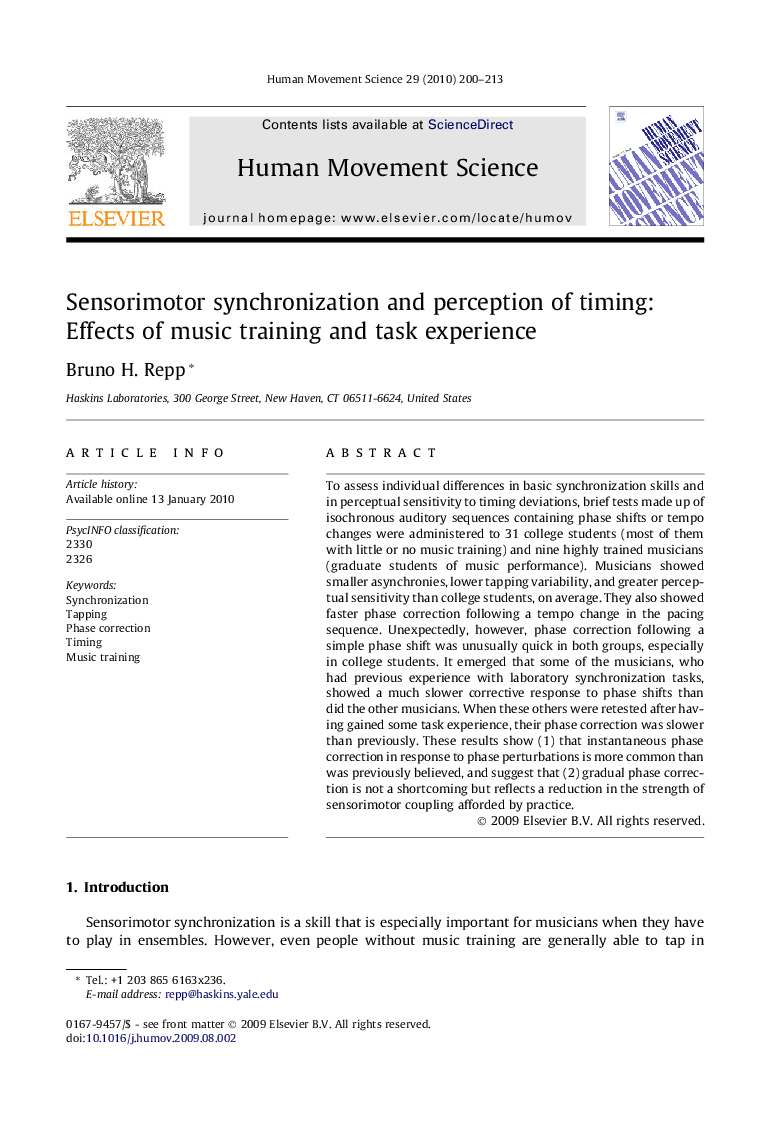| Article ID | Journal | Published Year | Pages | File Type |
|---|---|---|---|---|
| 928726 | Human Movement Science | 2010 | 14 Pages |
To assess individual differences in basic synchronization skills and in perceptual sensitivity to timing deviations, brief tests made up of isochronous auditory sequences containing phase shifts or tempo changes were administered to 31 college students (most of them with little or no music training) and nine highly trained musicians (graduate students of music performance). Musicians showed smaller asynchronies, lower tapping variability, and greater perceptual sensitivity than college students, on average. They also showed faster phase correction following a tempo change in the pacing sequence. Unexpectedly, however, phase correction following a simple phase shift was unusually quick in both groups, especially in college students. It emerged that some of the musicians, who had previous experience with laboratory synchronization tasks, showed a much slower corrective response to phase shifts than did the other musicians. When these others were retested after having gained some task experience, their phase correction was slower than previously. These results show (1) that instantaneous phase correction in response to phase perturbations is more common than was previously believed, and suggest that (2) gradual phase correction is not a shortcoming but reflects a reduction in the strength of sensorimotor coupling afforded by practice.
